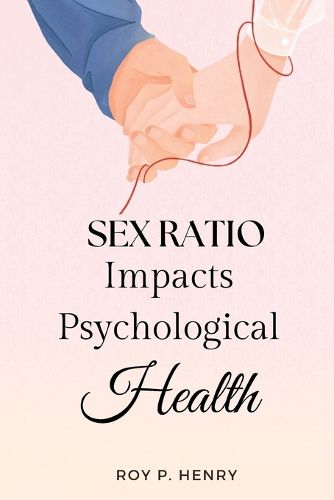Sex Ratio Impacts Psychological Health
Roy P Henry

Sex Ratio Impacts Psychological Health
Roy P Henry
This title is printed to order. This book may have been self-published. If so, we cannot guarantee the quality of the content. In the main most books will have gone through the editing process however some may not. We therefore suggest that you be aware of this before ordering this book. If in doubt check either the author or publisher’s details as we are unable to accept any returns unless they are faulty. Please contact us if you have any questions.
Pair bonding, or long-term adult romantic relationship, was advantageous in ensuring offspring survival and adult protection in the evolutionary environment, thus humans have evolved with strong mating and pair bonding motivations (Belsky, 1999; Fraley, Brumbaugh & Marks, 2005; Fraley & Shaver, 2000). Because successes and failures in meeting adaptive goals is correlated with emotional and psychological health (Nesse, 2016; Plutchik, 2003), decreased or thwarted mating opportunity should theoretically impact wellbeing. Sex ratio refers to the number of males relative to females in a given population and significantly influences mating opportunity. When sex ratio is skewed, the oversupplied sex experiences a dearth in mating opportunity (Guttengang & Secord, 1983). The minimal research that has been conducted in this area suggests that population sex ratio and mating opportunity influence wellbeing (Tucker & Mitchel-Kernan, 1989) yet more research is necessary to gain a better understanding of the psychological impact of sex ratio.
This item is not currently in-stock. It can be ordered online and is expected to ship in 7-14 days
Our stock data is updated periodically, and availability may change throughout the day for in-demand items. Please call the relevant shop for the most current stock information. Prices are subject to change without notice.
Sign in or become a Readings Member to add this title to a wishlist.


